Francisco de Zurbarán (original) (raw)
Francisco de Zurbarán
Paintings
The Infant Christ
The Young Virgin
The Child Virgin Asleep
The Immaculate Conception
Portrait of Santa Casilda
Saint Elizabeth of Portugal
St Lawrence
Still Life with Lemons Oranges and a Rose
Allegory of Charity
Lamb of God. Agnus dei
Saint Dorothy full-length holding a basket of apples and roses
Saint Luke as a Painter before Christ on the Cross
Fray Pedro de Ona
Vision of Saint Peter Nolasco
The Virgin and Child with the Infant St John the Baptist
Madonna and Child
Saint Ursula
Defence of Cadiz Against the English
The Annunciation
Christ Blessing
Saint Elizabeth of Thuringia
Saint Jacob
Saint Eufemia
Hercules Defeats the King Geryon
Hercules Diverts the River Alpheus
Hercules and Cerberus
Hercules Wrestling with Antaeus
Hercules Separates the Mountains Calpe and Abyla
Hercules Fighting the Erymanthian Boar
Hercules Fighting with the Lernaean Hydra
Hercules Fighting the Cretan Bull
A Cup of Water and a Rose
Saint Margaret of Antioch
Apparition of Apostle Saint Peter to Saint Peter Nolasco
Martyrdom of Saint James
Christ Crucified with Donor
Saint Diego of Alcala
Saint Jerome with Saint Paula and Saint Eustochium
Christ and the Virgin in the House at Nazareth
Saint Francis in Meditation
The Vision of Blessed Alonso Rodriguez
Tears of Saint Peter
Portrait of Doctor Juan Martinez Serrano full length
The Mystic Marriage Of Saint Catherine Of Alexandria
Still Life with Dish of Quince
The Archangel Michael
Childhood of the Virgin
The Holy Face
Fray Pedro Machado
Battle between Christians and Muslims at El Sotillo
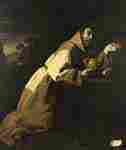
Saint Francis in MeditationSaint Margaret of Antioch The Annunciation
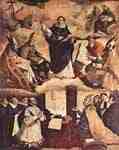
Apotheosis of St. Thomas Aquinas

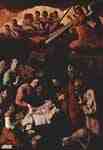
Adoration of the Shepherds Ariete
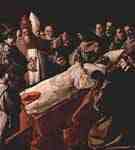
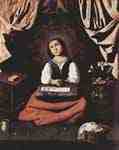

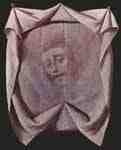
The Holy Face (sweat cloth of Christ)
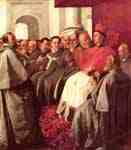
St. Bonaventure receives the envoys
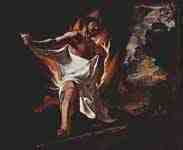
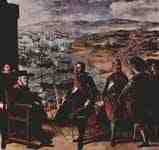


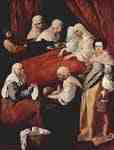
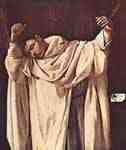
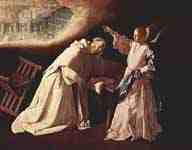
Vision of the Heavenly Jerusalem
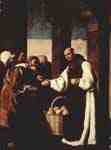
Mercy of Fra Martin de Vizcaya
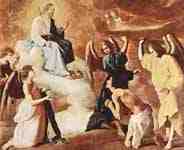
Flagellation of St. Jerome by the angels
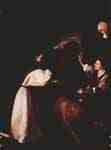
Temptation of Fra Diego de Orgaz
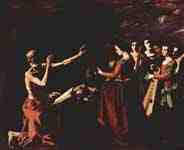
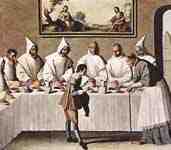
St. Hugo in the Carthusian monastery



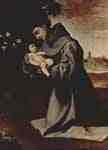

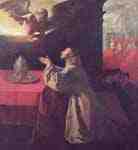






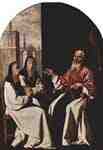
Hll.Hieronymus , Paula Romana and Eustochium
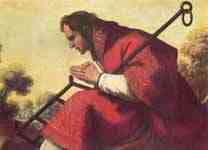
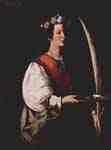
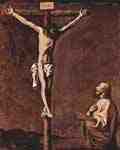
Saint Luke As A Painter Before Christ On The Cross

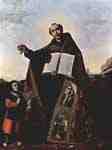
St. Romanus and St. Barulas of Antioch


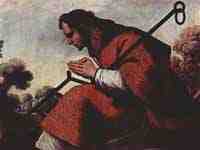
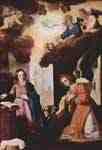

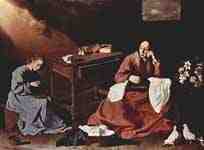
Contemplation of the Infant Jesus
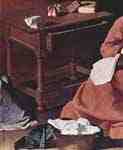
Contemplation of the boy Jesus , detail
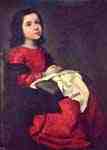
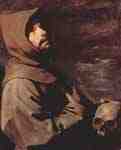
Meditating St. Francis with skull

Portrait of Fra Francisco Zumel
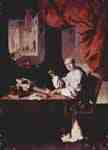
Portrait of Fra Gonzalo de Illescas

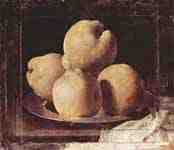
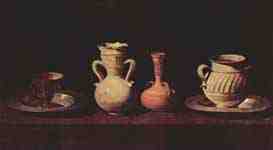
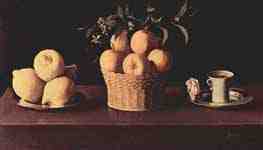
Plate with lemons , oranges and basket with Rose
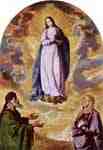
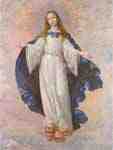
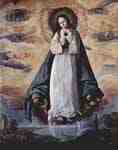
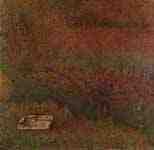
Immaculate Conception , detail
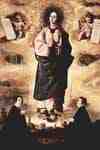
Immaculate Conception and two clergymen

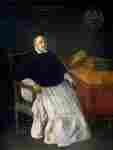
Fray Diego de Deza and Tavera, Archbishop of Seville.
Fine Art Prints | Greeting Cards | Phone Cases | Lifestyle | Face Masks | Men's , Women' Apparel | Home Decor | jigsaw puzzles | Notebooks | Tapestries | ...
The Infant Christ
Francisco de Zurbarán (baptized November 7, 1598 – August 27, 1664) was a Spanish painter. He is known primarily for his religious paintings depicting monks, nuns, and martyrs, and for his still-lifes. Zurbarán gained the nickname Spanish Caravaggio, owing to the forceful, realistic use of chiaroscuro in which he excelled.
Biography
Zurbarán was born in 1598 in Fuente de Cantos, Extremadura; he was baptized on November 7 of that year.[2][3][4] His parents were Luis de Zurbarán, a haberdasher, and his wife, Isabel Márquez.[3][4] In childhood he set about imitating objects with charcoal. In 1614 his father sent him to Seville to apprentice for three years with Pedro Díaz de Villanueva, an artist of whom very little is known.[5]
His first marriage, in 1617, was to María Paet who was 9 years older. They had several children, and María died after the third child in 1624. In 1625 he married again to wealthy widow Beatriz de Morales. On January 17, 1626 Francisco de Zurbarán signed a contract with the prior of the Dominican monastery San Pablo el Real in Seville, agreeing to produce 21 paintings within 8 months.[6] Fourteen of the paintings depicted the life of Saint Dominic; the others represented Saint Bonaventura, Saint Thomas Aquinas, Saint Dominic, and four Doctors of the Church.[7] This commission established Zurbarán as a painter. On August 29, 1628, Francisco de Zurbarán was commissioned by the Mercedarians of Seville to produce 22 paintings for the cloister in the their monastery. In 1629, the Elders of Seville invited Zurbarán to relocate permanently to the city, as his paintings had gained such high reputation, that he would increase the reputation of Seville. He accepted the invitation and moved to Seville with his wife Beatriz de Morales, the three children from his first marriage, a relative called Isabel de Zurbarán and eight servants. In May 1639 his second wife, Beatriz de Morales, died. Towards 1630 he was appointed painter to Philip IV, and there is a story that on one occasion the sovereign laid his hand on the artist's shoulder, saying "Painter to the king, king of painters". After 1640 his austere, harsh, hard-edged style was unfavorably compared to the sentimental religiosity of Murillo and Zurbarán's reputation declined. Beginning by the late 1630s, Zurbarán's workshop produced many paintings for export to South America.[8]
On February 7, 1644, Francisco married a third time with another wealthy widow, Leonor de Torder. It was only in 1658, late in Zurbarán's life, that he moved to Madrid in search of work and renewed his contact with Velázquez.[8] Zurbarán died in poverty and obscurity.
Style
Saint Francis of Assisi according to Pope Nicholas V's Vision.[9]
It is unknown whether Zurbarán had the opportunity to copy the paintings of Caravaggio; at any rate, he adopted Caravaggio's realistic use of chiaroscuro and tenebrism. The painter who may have had the greatest influence on his characteristically severe compositions was Juan Sánchez Cotán.[10] Polychrome sculpture—which by the time of Zurbarán's apprenticeship had reached a level of sophistication in Seville that surpassed that of the local painters—provided another important stylistic model for the young artist; the work of Juan Martínez Montañés is especially close to Zurbarán's in spirit.[10]
Still Life with Lemons, Oranges and a Rose, 1633, Norton Simon Museum
The Flight into Egypt, late 1630s, in Seattle Art Museum
He painted directly from nature, and he made great use of the lay-figure in the study of draperies, in which he was particularly proficient. He had a special gift for white draperies; as a consequence, the houses of the white-robed Carthusians are abundant in his paintings. To these rigid methods, Zurbarán is said to have adhered throughout his career, which was prosperous, wholly confined to Spain, and varied by few incidents beyond those of his daily labour. His subjects were mostly severe and ascetic religious vigils, the spirit chastising the flesh into subjection, the compositions often reduced to a single figure. The style is more reserved and chastened than Caravaggio's, the tone of color often quite bluish. Exceptional effects are attained by the precisely finished foregrounds, massed out largely in light and shade.
Artistic legacy
In 1627 he painted the great altarpiece of St. Thomas Aquinas, now in the Museum of Fine Arts of Seville; it was executed for the church of the college of that saint there. This is Zurbarán's largest composition, containing figures of Christ, the Madonna, various saints, Charles V with knights, and Archbishop Deza (founder of the college) with monks and servitors, all the principal personages being more than life-size. It had been preceded by numerous pictures of the screen of St. Peter Nolasco in the cathedral.
In Santa Maria de Guadalupe he painted various large pictures, eight of which relate to the history of St. Jerome; and in the church of Saint Paul, Seville, a famous figure of the Crucified Saviour, in grisaille, creating an illusion of marble. In 1633 he finished the paintings of the high altar of the Carthusians in Jerez. In the palace of Buenretiro, Madrid are four large canvases representing the Labours of Hercules, an unusual instance of non-Christian subjects from the hand of Zurbarán. A fine example of his work is in the National Gallery, London: a whole-length, life-sized figure of a kneeling Saint Francis holding a skull.
Thirteen of his paintings, depicting the patriarch Jacob and 12 of his sons, are held at Auckland Castle in Bishop Auckland. They were purchased by the Bishop of Durham, Richard Trevor, in 1756.[11] Held by the Church of England for over 250 years, in 2011 they were transferred, along with the castle, to a charitable trust backed by philanthropist Jonathan Ruffer.[12][13] Along with the Palace of the Bishop's of Durham, they will form the heart of a new museum and gallery exploring the history of religion, faith, and religious art.
In 1835, paintings by Zurbarán were confiscated from monasteries and displayed in the new Museum of Cádiz.
His principal pupils were Bernabé de Ayala and the Polanco brothers.
Exhibitions
2013, 14 September – 2014, 6 January, Palazzo dei Diamanti, Ferrara, Italy.
2014: Centre for Fine Arts, Brussels, Belgium (29 January – 25 May)[14]
Notes
Saint Luke as a Painter before Christ on the Cross. Humanities Web. Retrieved 30 September 2007.
"Seventeenth-century Art and Architecture". google.com.
"Zurbarán, 1598-1664". google.com. p. 135.
Baticle, Jeannine. "Francisco de Zurbaran: A Chronological Review". In Baticle, Jeannine. Zurburan. Metropolitan Museum of Art (1987), at p. 53.
Gállego and Gudiol 1987, p. 13.
Gállego and Gudiol 1987, p. 16.
Gállego and Gudiol 1987, p. 73.
Ressort and Jordan, Grove Art Online.
"Saint Francis". www.mfa.org. Retrieved September 2014.
Gállego and Gudiol 1987, p. 15.
"Zurbaran Paintings". Auckland Castle. Retrieved 5 March 2012.
Lloyd, Chirs (25 February 2012). "Prince Charles' charities support for Auckland Castle project". The Northern Echo. Retrieved 5 March 2012.
Bailey, Martin. "Zurbarán sale could lead to National Gallery branch". The Art Newspaper. Retrieved 5 March 2012.
"BOZAR EXPO - Zurbarán - 29.01 > 25.05.2014". BOZAR.
References
Gállego, Julián; Gudiol, José (1987). Zurbarán. London: Alpine Fine Arts Collection, Ltd. ISBN 0-88168-115-6
Ressort, Claudie; Jordan, William B. "Zurbarán, de." Grove Art Online. Oxford Art Online. Oxford University Press.
Public Domain This article incorporates text from a publication now in the public domain: Chisholm, Hugh, ed. (1911). Encyclopædia Britannica (11th ed.). Cambridge University Press.
----
Fine Art Prints | Greeting Cards | Phone Cases | Lifestyle | Face Masks | Men's , Women' Apparel | Home Decor | jigsaw puzzles | Notebooks | Tapestries | ...
----
Artist
A - B - C - D - E - F - G - H - I - J - K - L - M - N - O - P - Q - R - S - T - U - V - W - X - Y - Z
Retrieved from "http://en.wikipedia.org/"
All text is available under the terms of the GNU Free Documentation License


















































